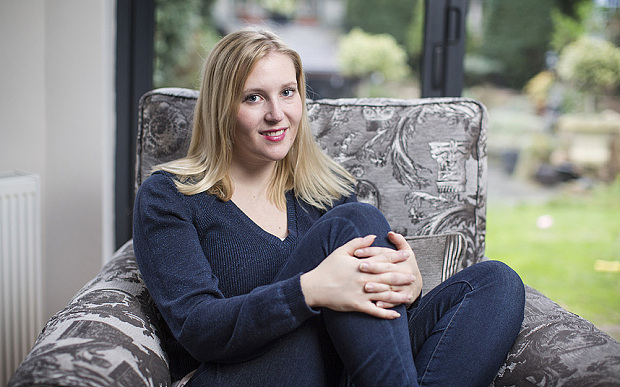Compared to the average 22 year old graduate, Jessica Manning – an engineering masters graduate from the University of Cambridge – is in a seriously strong financial position.
Her graduate job in management consultancy pays over 50pc more than a typical graduate starting salary, and as she lives at home with her parents for free, she is able to save around £2,000 monthly.
Her ability to save is enhanced by substantial periods of overseas work during which all of her travel, accommodation and food costs are covered.
Currently Jessica has just under £30,000 saved toward a deposit.
She will also receive £5,000 from one of her grandparents toward stamp duty and fees.
Despite the strong position she is in for her age, buying in the areas she likes poses a challenge. She is targeting a one- bedroom flat in the Stockwell or Clapham areas of London, due to proximity to work and friends.
In a bid to take her financial security to the next level, Jessica plans to become a buy to let landlord in her mid to late twenties by purchasing a second property after a few years in order to rent out the first.
In her words, Jessica is “aggressively” going after a property and ideally hopes to buy within the next six months, before house prices “get so far out of my price range that I am forced to rent for the rest of my life.”
She acknowledges that she has to be realistic with what she can afford, but is set on buying in a desirable area.
She said: “I know I have to compromise – I don’t mind living somewhere really small.”
Her parents earn good salaries but don’t have spare cash to hand. Instead, they are willing to act as guarantors or to buy with her to increase her mortgage potential.
An alternative option Jessica is considering is to buy a two-bed property in the same areas with a friend, who has a similar deposit amount saved but a lower salary.
She is avoiding Help to Buy schemes, as the equity loan type applies only to newly-built properties, which she does not want. And with a sufficiently large deposit she does not require a mortgage guarantee-type scheme, either.
Jessica’s savings are currently spread across various Lloyds accounts and Isas, including a Halifax Help to Buy Isa, and are mostly earning a good rate of interest.
She also contributes 5pc of her salary to a workplace pension, which is matched by 6pc from her employer.

If you do look at buying a property now it looks like you will be unlikely to do so without either your friend or parents’ involvement, in which case you need to protect yourself (and them) legally and financially.
The two main types of protection important in your scenario would be mortgage protection and income protection.
Mortgage protection is basically life assurance taken out for the same value as your mortgage. It lasts the same term and reduces at a similar rate annually as you repay the mortgage.
As a 22 year old you may think that life assurance is not necessary, but most 22 year olds will not have debts of £100,000 or more that will need to be repaid on their death.
If your parents are guarantors or you take out a joint mortgage then the debt would fall on them should anything happen to you, and it is not always as straightforward as just selling the property.
If you bought a flat with parents as guarantors and a mortgage of £264,000, mortgage protection would cost less than £10 per month, or £15 per month if you bought with a friend with a £350,000 mortgage.
Make sure that you both have a policy (or a joint policy) and name each other as the beneficiaries of the plan.
It is also important that you think about ensuring that you can afford to live if you are unable to work through ill health or injury.
I know that when we mentioned this you were worried that “income protection” sounded like a scam but all it does is provide an income stream should an accident or illness stop you from working.
On your current earnings you could get cover that would pay out £2,000pm net to the age of 67 (your state retirement age) that increases by inflation annually.
When this policy pays out has a massive bearing on cost. If you have six months savings and can afford to defer this type of policy for the full six months it might only cost you £25 monthly or £40 monthly for a policy with a one month deferral period.
I know that you are concerned about getting on the property ladder whilst you can but it is important to realise that just like any other asset or investment, property will have bad times when values can fall quickly.
Also, by jumping on the property ladder at this early stage in your career you may prematurely bind yourself to a location. You have mentioned that you travel a lot with work, so you may find that your future career prospects are global rather than local.
A property in London owned with a friend may be difficult to get your money out of when you need to.
You could invest your deposit and regular savings over the next five years to help build a much larger deposit with which to attack the property market.
Now, five years at home might just be pushing your parent’s generosity a little far but you could rent a one bedroom flat in Clapham for about £1,000pm including bills.
This would allow you to try out living in the area and to save an additional £1,000pm to invest along with your existing saved deposit.
Assuming annual investment growth of 5pc after fees and the effect of inflation over five years you could have a deposit of approximately £106,000.
Of course all investments carry risk. You may end up with a smaller deposit than you hoped for, or need to wait a little longer for investments to go back up.
Jonothan McColgan – Combined Financial Strategies


